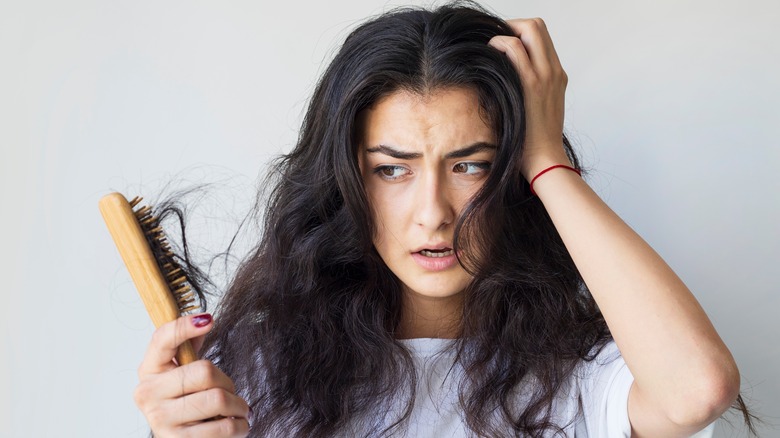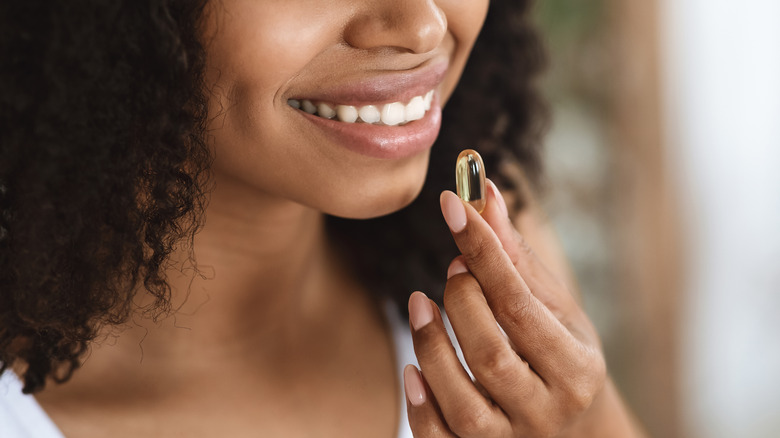The Best Ways To Fight Stress-Induced Hair Loss
If you have medium or long hair, you've likely noticed how many strands get lost daily from simply showering or brushing your hair. With shorter hair, it may be less obvious. According to the American Academy of Dermatological Association, losing between 50-100 strands of hair daily is considered normal. Although that seems like quite a lot, you have about 100,000 strands of hair on your head, and you'd lose much more hair on a daily basis if there was a problem.
Many of us have heard how stress can make you lose hair, yet it's often thought of as more of a myth rather than a scientific fact. One of the biggest causes of major hair loss is stress (via VeryWellMind). The truth is there are a variety of reasons for losing hair when your body is stressed and some might surprise you. The good news is that there are ways to counter the hair loss caused by stress and tips to help strengthen and restore your natural locks.
How stress makes your hair fall out
There are two types of stress-induced hair loss. One is known as telogen effluvium (via Mayo Clinic). This occurs when your body undergoes an intense stress period and your hair follicles actually stop reproducing and enter a "resting phase." As a result, hair strands that were stuck in a prolonged resting period when you had stress may begin falling out months later.
Another type of stress-induced hair loss is known as alopecia areata. This is an autoimmune disorder where your immune system actually attacks your hair follicles which results in hair loss. In addition to stress, this type of hair loss can also be triggered by hay fever, dermatitis, thyroid disease, and asthma.
The type of stress that causes hair loss can be varied. Any type of emotional or physical pressure or trauma can place stress on the body. That includes emotional stress as well as things like childbirth, extreme weight loss, and surgery (via Healthline).
Tips to counter stress-induced hair loss
When your body is stressed, the first thing to do to reset it is to bring it back to homeostasis. That includes getting your physical, emotional, and mental health in order.
The best way to build your body back up to recover from a stressful period is to treat yourself with lots of TLC, and doing this has a biological benefit. Start off by eating well and make sure you focus on consuming grains, veggies, and protein every day, ideally at every meal.
If your body was stressed due to illness, surgery, or weight loss, you may be deficient in key nutrients (via WebMD). Take a supplement that includes vitamins B12, vitamin D, zinc, and ferritin to build back.
When stress is caused by emotional reasons, the optimal fix is to remove the stressor, but that's not always possible (via Cleveland Clinic). When going through a divorce, job loss, losing a loved one, or a toxic situation, finding ways to learn to live with the grief will help most. Finding a therapist who specializes in what you're going through can make all the difference and getting enough sleep is vital.
Other stress management tools include finding a new hobby, exercising, starting a journal, and surrounding yourself with positive people who care about you.
These things combined will help balance you, reduce your stress levels, and restore your hair to optimal health.


